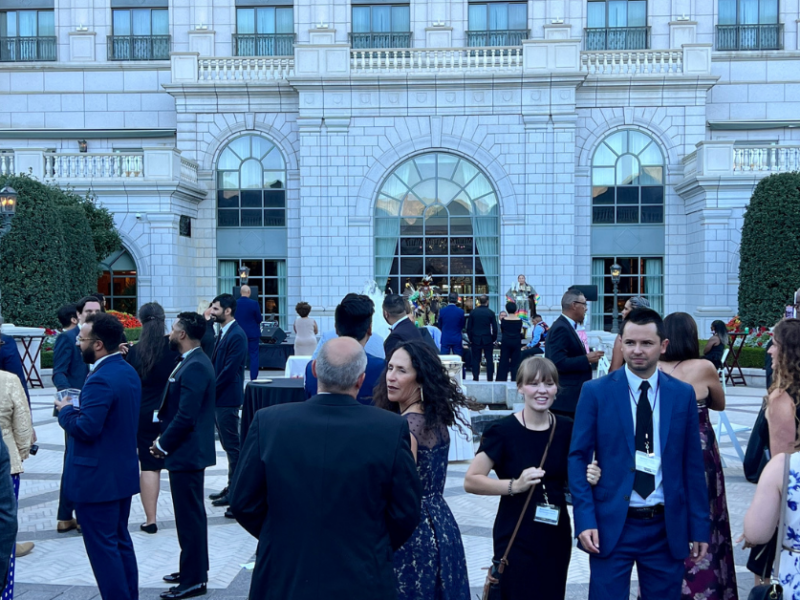
Here’s how to focus your New Year’s resolutions on habits, not goals
Each year begins with ambitious quests to set new goals. Throughout the year, we celebrate entrepreneurs, investors, and leaders who have succeeded by setting and achieving goals. We look for their secrets and listen to the counsel that has given them an “edge.” To avoid being caught among Thoreau’s mass of men and women who “lead lives of quiet desperation,” we commit to recipes for success that often come as pre-packaged goals promising quick fixes.
My counsel to young and mid-career professionals, however, is to focus more on developing habits over singular goals. Habits are as powerful as they are sustaining, and more accurately determine who you are as you develop your operating systems for your career and life.
Goals are important when it comes to determining necessary changes. They can be reinforcing and offer short-term satisfaction and near-term mileposts in our journey for self-improvement. They can also be redefined and modified to increase our capacity for growth. But true and lasting growth will come only as those goals drive habits that systematize success, allowing you to achieve the version of yourself that you know is possible.
One of the best ways to begin this process is to define your core values and develop a personal mission statement. Stephen Covey’s Seven Habits of Highly Effective People remains the standard on why this is important and how it is done (notice that it is seven habits). The late Dr. Covey called this “aligning personal paradigms with universal principles,” prioritizing what is most important and “visualizing the outcome of every step toward your goal so it will be easier to translate into concrete actions.”
Elon Musk and others often remind us that self-discipline is a strong indicator of success—that “I can” is more important than IQ. This is how concrete actions morph into habits and how those habits have life-altering consequences, even to the extent of expanding intellectual capability through what developing science calls “the growth mindset.” Cutting-edge research indicates that neuroplasticity, or the brain’s ability to develop and even heal itself, is a lifelong process. Through mindfulness, we can enjoy positive behavioral modification and growth every day of our lives.
Once you have determined the values and missions that bring meaning to your life, define key relationships and actions that go beyond sustainability to actually define who you are. Remove distractions that threaten and undermine your progress by drawing you back into negative patterns and behaviors that you want to overcome. Remind yourself that, in time, the new micro-changes will feel more comfortable as they move from conscious thought to subconscious behavior.
Just as our initial anxiety of learning to drive a car becomes automatic through practice and repetition, behavioral patterns will soon create habits to sustain you even when stress creeps in. These new or stronger habits will decrease the mental load on your brain, optimizing decision-making. Boiling your life down to its simplest habits will energize the journey to your new and more ambitious destination.
Finally, as you develop your habits into an operating system that is underpinned by operating principles, a culture will emerge in your life. This individual culture will become the singular and unique value that only you can bring to every team and organization you serve. This value will resonate with those most important to you—family members, employers, employees, friends, and customers—as you establish a personal commitment to excellence and growth.






